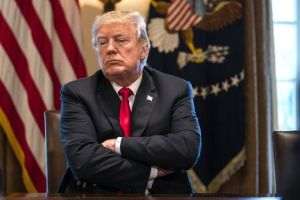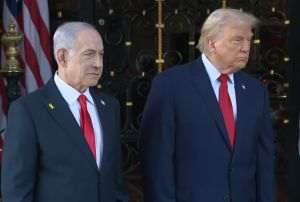Reporter: Mr. Mihai Bogza, you have recently started your second term as president of the Council of Foreign Investors (FIC). What will be the main priority of the FIC during your new term?
Mihai Bogza: Our main priority has been and remains creating a friendly business environment, which would lead to a quick economic growth.
Reporter: And how is the quality of the business environment measured?
Mihai Bogza: There are several rankings that measure its attractiveness, such as the one drafted by the World Bank, for instance. But, aside from this kind of rankings, in which Romania is doing rather poorly, the supreme test comes in the form of the volume of foreign investments. Unfortunately, in that regard, Romania still has a long way to go - for a few years now, the level of FDI (Foreign Direct Investments - Direct Foreign Investments) has remained below 2 billion Euros a year, far below the country's potential and the amounts that other countries that have a quicker development pace have been successful in attracting. Furthermore, the bulk of these investments goes toward the recapitalization of the already existing companies, whose capital has been eroded by the crisis, rather than towards investments in new companies.
We can't even remember the last time when an investment of 1 billion Euros was made in Romania...
Reporter: Could you enumerate some causes for Romania not ranking higher in terms of its attractiveness to foreign investors?
Mihai Bogza: The high taxation rate, higher than the EU average; the lack of transparency and predictability in the legislative process; the bad infrastructure; the corruption; the sovereign risk; the small domestic market, compared to the potential that the size of the population would suggest, and unfortunately I could go on and on. Obviously, all these factors are on the working agenda of the FIC in order to improve the situation, but the problems won't be so easily solved.
Reporter: Since you've mentioned taxes - the position of the business community on the cut of the Social Security Contributions (CAS) has caused some confusion. In the end, do you support this cut or not?
Mihai Bogza: The confusion may have departed from the idea that everyone took what they wanted out of our statement, which has two parts. Of course, at the FIC we support the cut of the CAS, especially given the fact that there has already been a significant worsening of the taxation which has negatively affected the business sector, through the introduction of the tax on special constructions and the increase of the fuel excise. Moreover, as is well known, the taxation of labor in Romania is already very high and an easing in that regard is necessary.
Reporter: Seems clear. So then what is the second part of the answer?
Mihai Bogza: Well, such a measure, which I repeat is beneficent, has to be sustainable. In other words, the budget must be able to meet the deficit targets in the coming years without further tax increases being necessary. We don't want what was given to us this year with one hand, to be taken away with both hands next year. And I know what I am talking about when using the "both hands" expression, because with a rate of tax evasion, which is almost as high as 50% on certain categories of taxes, those who usually pay their taxes will have to bear the cost of the taxes lost due to the tax evaders, and since the members of the FIC are among the most scrupulous taxpayers, they will also be the most affected. This is the reason why we want to be sure that the cut of the Social Security Contributions is a sustainable measure.
Reporter: And how can we know that, when the president and the prime-minister disagree on the matter?
Mihai Bogza: We have two referees which I think can not be suspected of political bias. One of them is the IMF, with which Romania has signed an agreement, which, if it were violated, would involve rather serious consequences, including when it comes to the relationship with the European Union. From our point of view, if the IMF thinks that the cut of the CAS is sustainable, then we are pleased as well.
The second referee is the Fiscal Council, which we think has both the ability and the tools to review the sustainability of the fiscal measures taken by the Government.
Reporter: So far, the two referees don't seem too pleased...What would then be the solution, to drop the measure?
Mihai Bogza: I don't think it would be a good thing, especially since, I repeat, the business sector has been far too burdened, and it deserves an easing. Proposing the solution is not up to us, the business sector, but I can suggest an option: if the forecasted budget revenues aren't achieved, then logic requires a formal commitment of the authorities to cut expenses, and obviously, not of the investment expenses, but of the others. In the private sector, this thing happens all the time, why shouldn't it happen in the public sector as well? Especially since the tax collection level is strictly a performance indicator of the public sector...
Reporter: The authorities seem convinced that they can improve their collection in the coming period.
Mihai Bogza: And we, the business community, have formulated a series of concrete proposals to help improve the tax collection rate, but I repeat, if they are not made into anything concrete, then it is not all those taxpayers that pay their taxes that should be punished, but the people that pledge to improve the tax collection rate and don't.
Reporter: I know that the FIC has also made proposals to improve the salary structure in the public sector. What is their current status?
Mihai Bogza: According to what we know, no progress has been made so far. The end goal that we have followed through these proposals was to ensure decent wages, in line with the volume of work, the responsibilities and the performance of the employees in the public sector, but without increasing the total salary expenses. In other words, we think that the same principles as in the private sector should be applied in the public sector, after all, the private sector pays the wages of the public sector employees through its taxes.
Reporter: One last question, addressed to the former bank regulator Mihai Bogza. Lately, the reporting in the Romanian press has focused rather intensely on the bank troubles in Bulgaria. Do you think similar events are possible in Romania?
Mihai Bogza: What I understand is happening in Bulgaria seems to be a classic case of a major bank being defrauded by its main shareholder. Or in Romania, since the beginning of the year 2000, the system has removed the banks defrauded by those shareholders or "privileged clients" who were called "controversial businesspeople" in public, and in private, simply "crooks". To say nothing that, even though much belatedly, some of them have finally ended up in prison, in some cases together with the representatives of the legal system who have abetted their activity or have protected them from the consequences of their actions. I think that it is now even clearer how important the cleanup of the banking system in the years 1999-2000 was, which led to the Romanian banking industry attracting strong bank groups, which precludes the occurrence in Romania of a similar situation to the one that is happening in Bulgaria. To get back to the main topic, a simple comparison of the structure of the banking system in 1998 and the one of today represents in itself a more than convincing argument in favor of stimulating foreign investments. We, the FIC, will continue to talk to the speak authorities in order to achieve this goal.
Reporter: Thank you!


















































